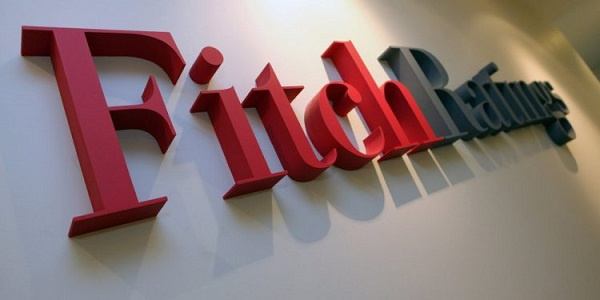Fitch Ratings has revised the outlooks on FBN Holdings Plc's and its main operating subsidiary First Bank of Nigeria Limited’s (FBN) Long-Term Issuer Default Ratings (IDRs) to positive from stable and affirmed the IDRs at 'B-'.
The revision of the outlooks mirrors the recent sovereign Outlook revision and reflects Fitch's view that Nigeria's Long-Term IDRs are likely to represent less of a constraint on the issuers' standalone creditworthiness in the near term.
The UK-based firm also affirmed the issuers' National Long-Term Ratings at 'A’ with stable outlooks.
“FBN and FBNH's IDRs are driven by their standalone creditworthiness, as expressed by their Viability Ratings (VRs). The VRs reflect the banks' high sovereign exposure relative to capital and the concentration of their operations in Nigeria. The positive outlooks on the Long-Term IDRs mirror that on the sovereign. The National Ratings balance a strong franchise, healthy profitability and a stable funding profile against high credit concentrations and thin capital buffers”, it mentioned.
Challenging Environment
President Tinubu has pursued key reforms since he assumed office in May 2023, reducing the fuel subsidy and overhauling monetary policy, including allowing the naira to devalue by over 65%.
Fitch said the reforms are positive for Nigeria's creditworthiness and foreign exchange market liquidity but pose near-term macro-economic challenges for the banking sector.
Strong Franchise
FBN is Nigeria's third-largest bank, representing 10.7% of banking system assets at end-2023.
Fitch said its strong franchise supports a stable funding profile and low funding costs. Revenue diversification is significant, with non-interest income typically exceeding 40% of operating income.
High Sovereign Exposure:
The single-borrower credit concentration is material, with the 20 largest loans representing 354% of FBN's total equity at end-quarter one 2024.
The UK-based firm said oil and gas exposure (end-2023: 33% of gross loans) is greater than the banking-system average.
Again, sovereign exposure through securities and cash reserves at the Central Bank of Nigeria (CBN) is high relative to FBNH's Fitch Core Capital.
High Stage 2 Loans
FBNH's impaired loans (Stage 3 loans under IFRS 9) ratio increased slightly to 4.9% at end-2023 (end-2022: 4.7%) due to operating environment challenges.
Specific loan loss allowance coverage of impaired loans was 40% at end-2023. Stage 2 loans remain high (end-2023: 20% of gross loans; concentrated in the oil and gas sector and largely US dollar-denominated) and represent a key risk to asset quality, having inflated due to the devaluation.
Fitch forecasts the impaired loans ratio will increase moderately in the near term.
Latest Stories
-
GPL 2024/25: Aduana Stars demolish Legon Cities 4-0
20 minutes -
GPL 2024/25: Vision FC clinch crucial win over Karela United
37 minutes -
AfroCuration Ghana 2025 unites 7 Ghanaian languages to promote African identity on Wikipedia
55 minutes -
GPL 2024/205: Bechem United held to goalless draw by Basake Holy Stars
1 hour -
GPL 2024/25: Bibiani GoldStars hold Asante Kotoko in goalless stalemate
1 hour -
Africa Day: Injustice and inequalities affect Africans, people of black descent – UN Secretary-General
1 hour -
Western Regional Minister orders action to halt encroachment on Ghana Water Company lands at Daboase
2 hours -
Free speech should not be criminalised – GJA urges
2 hours -
Ghana to export nurses and teachers to work in Jamaica under new agreement
3 hours -
Sky Agro, Intraco train poultry farmers on feed use to curb losses
4 hours -
Playback: The Law discusses “The False News Crime”
4 hours -
Ashanti Presbytery holds 15 synod with renewed call for care for environment
5 hours -
NGO Today for Tomorrow hands over 7-classroom block to Sakasaka Cluster of Schools in Tamale
5 hours -
FDA confiscates illicit tobacco products in Accra
5 hours -
Dr. Apaak welcomes Canadian International Development Scholarships team
5 hours

